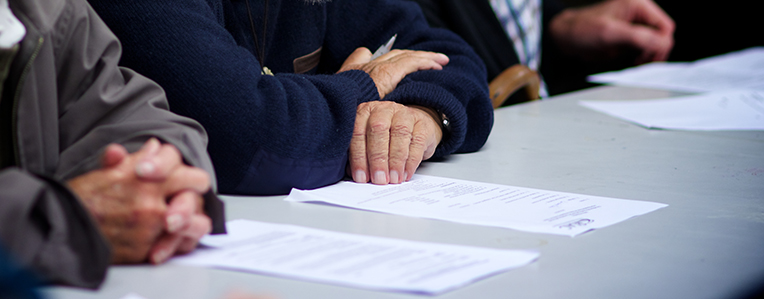Conflicts of interest and the consequences when they lead to private benefit
blogs

Posted on 2 September 2016
This is the third blog post in our series on conflicts of interest and charities. The first post defined conflicts of interests and related parties, and the second post talked about what charities need to consider when applying for registration.
Part of Charities Services’ role is monitoring charities to ensure they continue to be eligible for registration, and inquiring into charities to see if their conduct is a breach of the Charities Act or ‘serious wrongdoing’.*
The independent Charities Registration Board can remove a charity from the Charities Register if the charity no longer meets the charitable purposes test, or the charity or someone associated with the charity has engaged in ‘serious wrongdoing’.
When a charity allows its funds to be used for the private benefit of individuals, the first question we’ll ask is whether it’s reasonable and at ‘arms-length’. As mentioned in our previous posts, paying related people and businesses market rates (or below market rates) for goods and services may be fine if the decision is made independently and for the best interests of the charity.
However, if there’s evidence that those benefits aren’t reasonable or are not at ‘arms-length’, this may be considered serious wrongdoing. If officers have influenced decisions where they or related parties benefited, it could mean they’ve used the charity’s funds ‘unlawfully’ because it’ll likely be a breach of their duties under the law or their rules document.
For example: a trust may run a small shop to help raise money for a scholarship fund.** If the two trustees decide to work at the shop, and decide to pay each other very high wages, we would probably see this as an unlawful use of the funds of the trust. As trustees have a duty to make decisions for the best interests of the Trust, we might consider the decision to pay the trustees breaches that duty, which means they used the Trust’s funds unlawfully.
It may also mean a charity is set up for an independent purpose to provide private benefits, in which case they would not qualify for registration.
For example: if a Company’s directors set up a charitable society so they can borrow money off that society at lower than market rates, we’d see that as an independent purpose to support that Company. It would also likely be serious wrongdoing.
Where this has led to losses for the charity, this may also constitute “gross mismanagement”.
For example: if trustees decide to invest in their own Company, and that Company fails but the trustees decide to continue to invest, hoping for a turn around, if the conduct results in significant losses for the charity, as well as being an “unlawful use of the funds” and “an independent purpose to provide private benefit”, it can also be gross mismanagement.
An example of where this occurred is in the decision of the Charities Registration Board on the Southern Cross Charitable Trust�. In that case, a pattern of conflicts in decision making led to private benefits for companies related to the decision maker.
Deregistration is not the only option for Charities Services in these situations. If the issue is a one-off, or action by a single officer that isn’t supported by the other officers, the Board wouldn’t usually see a public interest in removing the charity.
Where possible and reasonable we will work with charities to help them to comply. The outcome of most investigations is Charities Services working with charities to solve the issues and then providing ongoing monitoring and support to keep them registered.
If you are worried your group may be engaging in activity which constitutes serious wrongdoing, don’t hesitate to contact us, and we’ll provide you with some guidance. If you want to make a complaint about a charity, we recommend you first read our complaints page�.
A really important way to remain compliant is ensuring you keep good financial and meeting records of your charity, and report the relevant details in your Performance Report (tiers 3 and 4) or Financial Statements (tiers 1 and 2) and annual return.
The next post will discuss how you should disclose “related party transactions” in your Performance Report or Financial Statements, to meet the requirements of the new reporting standards for charities.
*Serious wrongdoing is defined in the Charities Act as including a number of specific activities. One of those definitions is “an unlawful or a corrupt use of the funds or resources of the entity.” Another is “an act, omission or course of conduct by a person that…constitutes gross mismanagement.”
**It’s worth noting trusts must have express clauses in their rules document permitting trading activity.

